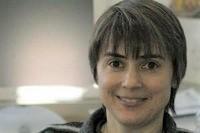
Submitted by Administrator on Tue, 31/07/2018 - 15:20
There is a “deep logical flaw” in the new ruling by the European Court of Justice in its attempt to draw a line between natural and artificial in crop production, says Professor Ottoline Leyser, the Director of Sainsbury Lab at the University of Cambridge.
The court has recently decided that genetic modification includes any technique that induces genetic changes “in a way that does not occur naturally”, including new genome editing techniques such as CRISPR/Cas9.
Several scientists have been disappointed with the ruling and criticised it for setting back crop research using gene-editing techniques in the EU. But most importantly, points out Professor Leyser, the ruling has a deep logical flaw in the whole regulatory approach. “Plants that have been bred in more traditional ways, which could have just as serious health or environmental impacts, will continue to be exempt from regulation. Focusing on how a new crop is produced – rather than the new characteristics or agricultural practices it brings – will inevitably result in wholly inadequate protection for the environment and consumers”, says Professor Leyser.
Read the whole comment in The Conversation here.
Ottoline Leyser is a Member of Cambridge Global Food Security. Read her “Meet the Researcher” interview with our Coordinator here.

